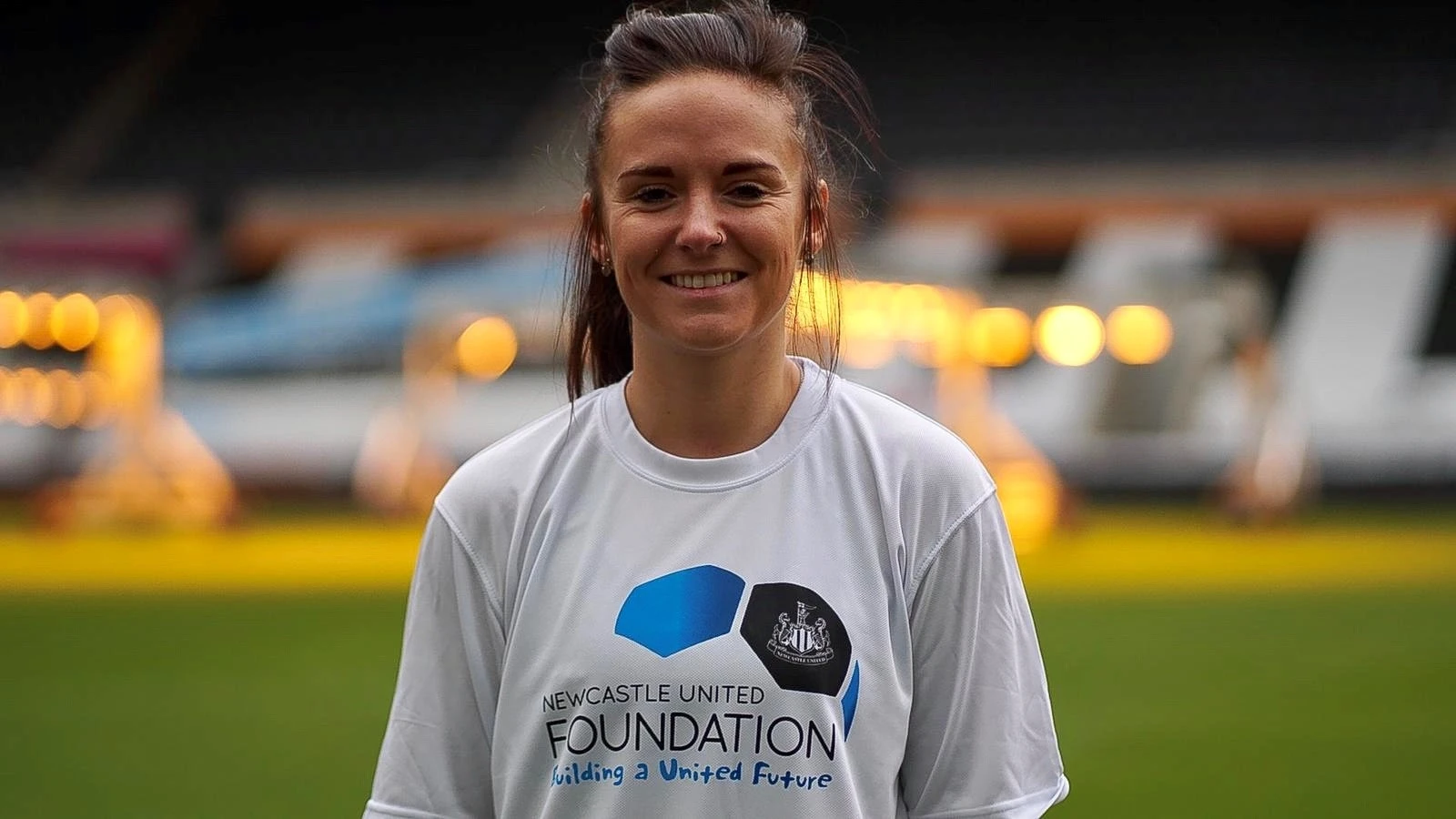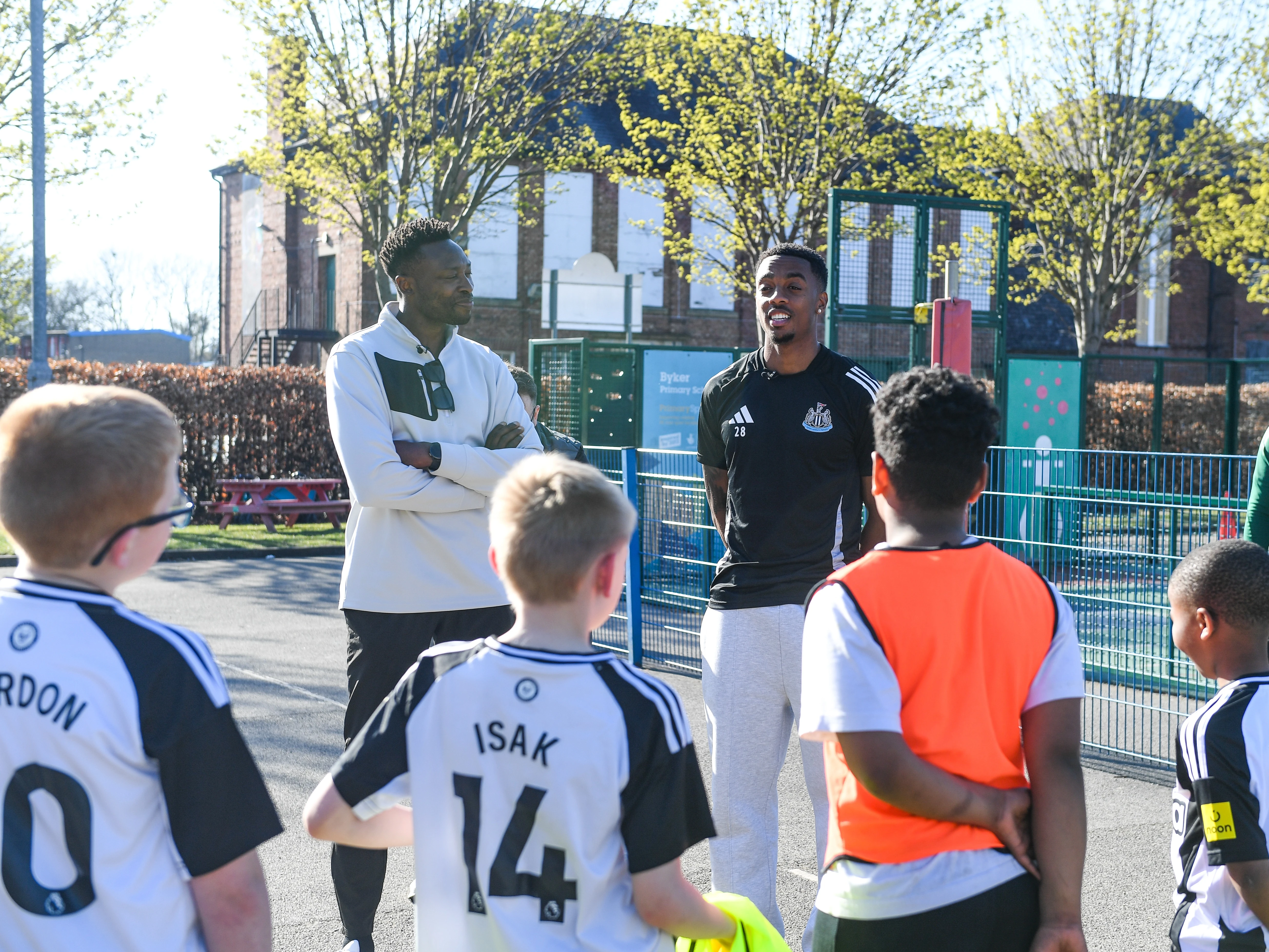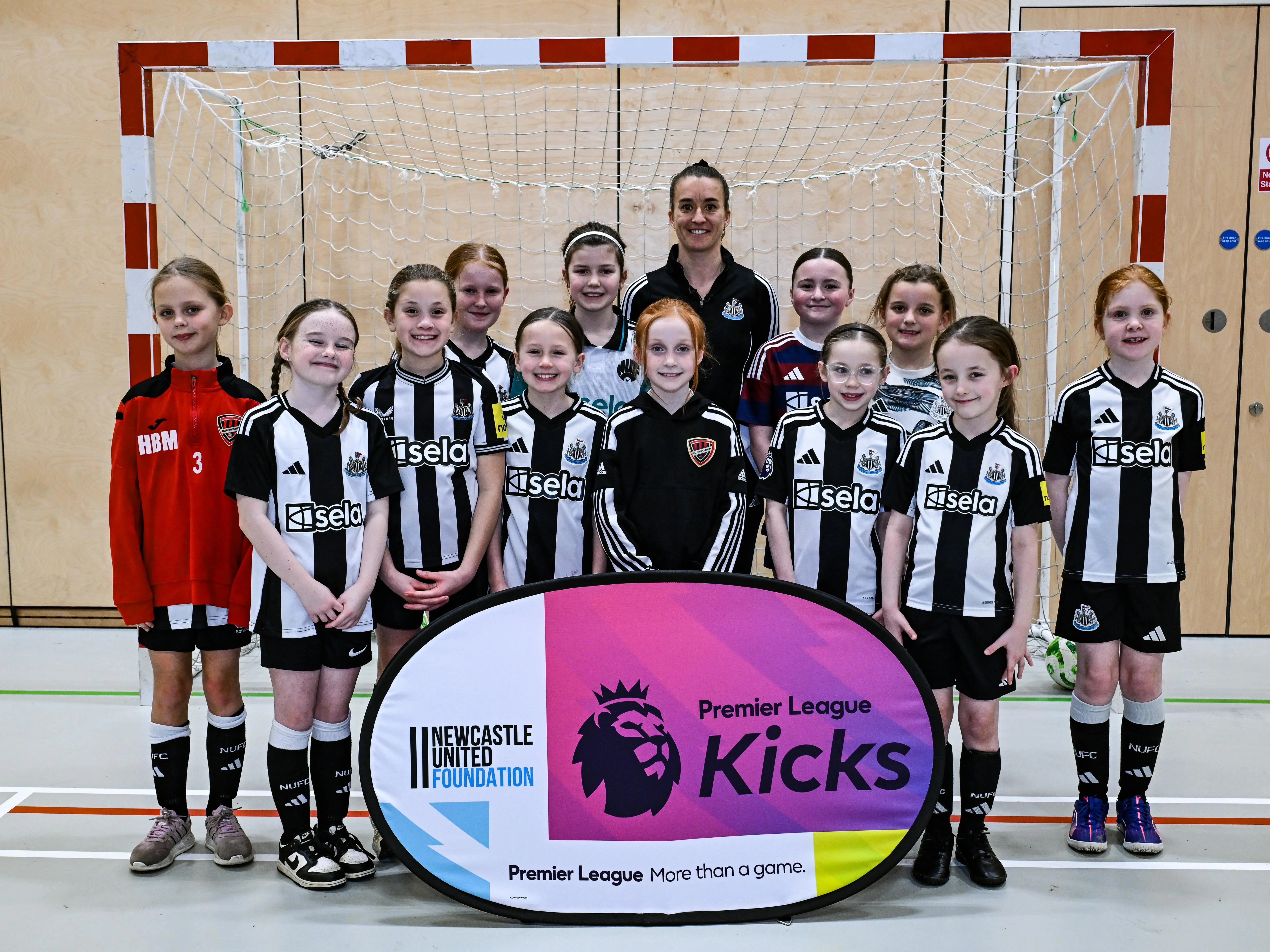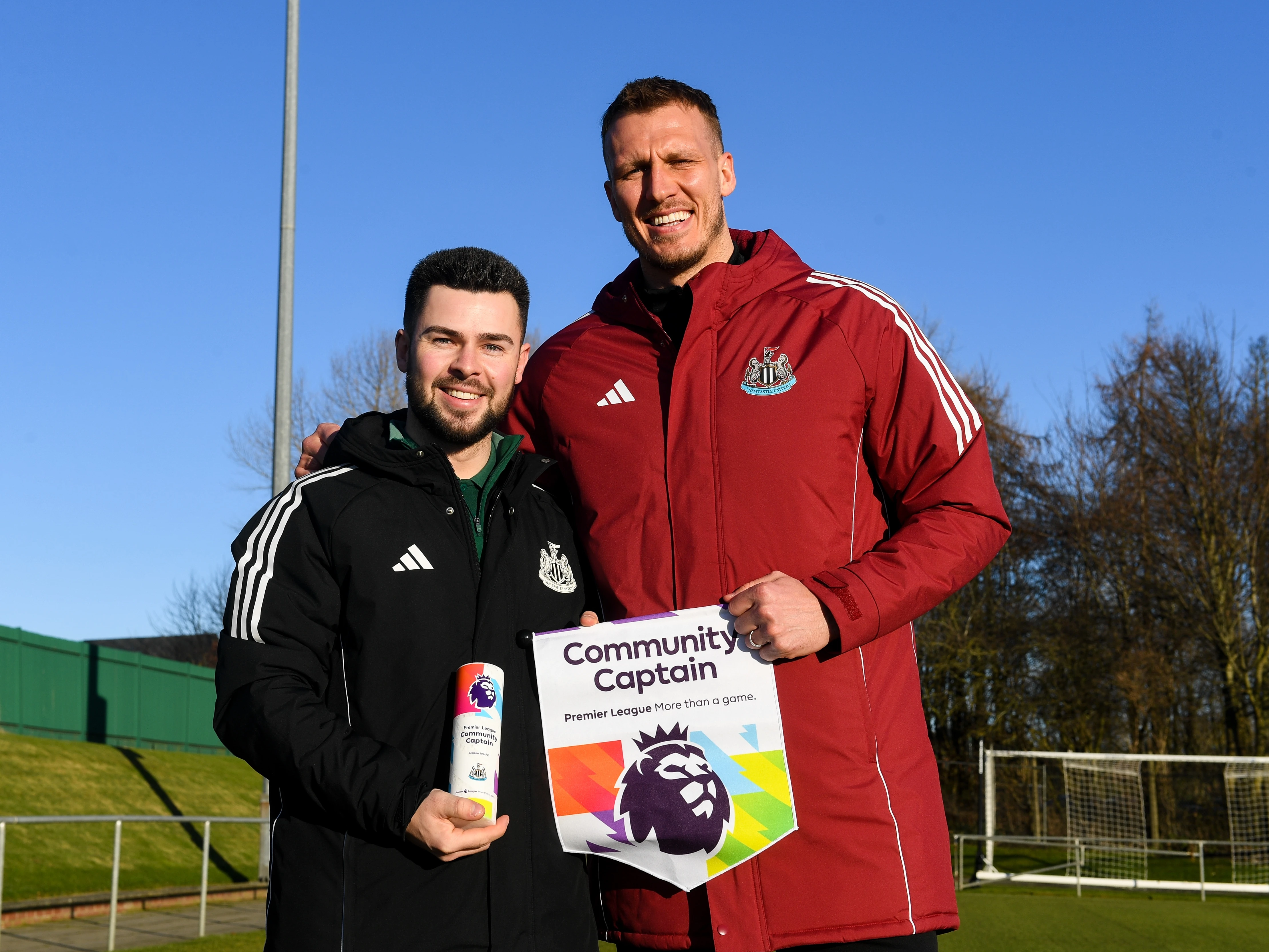Cochrane is the first woman to become an ambassador for the charity's campaign, highlighting Be A Game Changer's provision to support all genders within the North East’s football community.
This International Women's Day, she is sharing her story to empower other women and girls to check in with each other or access advice on mental and physical wellness provided by the Foundation through digital resources and Health and Wellbeing sessions.
Cochrane had found herself struggling to cope after picking up a potentially career-ending injury last year. Made bedbound at the start of the UK's first lockdown, the 28-year-old could not escape her own thoughts of what her life might be like without the sport she loves.
"Football for me is like a coping mechanism," Cochrane explained. "I think if you ask anyone who plays football or any kind of sport will tell you something similar. When I cross that white line, nothing else matters. Those 90 minutes are the best 90 minutes of my week, day, anything - and when I'm playing, that's all I think about.
"But over the past year, all that was taken away from me and it's probably been the hardest year of my life. I suffered a massive injury and a week before the first lockdown started, I had a full ACL reconstruction - a complete new ligament was put into my knee and I was bedbound and couldn't walk.
"I'm 28 now and I've never been injured until this last year, so I've never experienced anything like it in my life. I've always been a hard, strong person, but this experience was a whole new can of worms and I had to find a way to deal with it."
As a Mental Health Trainer with the University of Sunderland, Cochrane is no stranger to mental health matters and regularly delivers support workshops for students connected to university clubs and teams on campus.
Be A Game Changer also targets men and women with a passion for sport, offering mental health advice and practical guidance for adults in the North East through the charity's dedicated campaign web page and social media, as well as peer support groups and wellbeing sessions at St. James' Park.
However the United Women's captain found it challenging to address her own wellbeing as she contemplated a future without football following her surgery.
"If I'm not playing football, I'm watching it - it's how I cope with everything," said Cochrane. "So when the Premier League season was postponed, my mental health really was poor as all my coping mechanisms were gone. As I was learning to walk again, the only focus I had was thinking that one day, football would be back and I would be back playing and watching the sport that I love - that was the light at the end of the tunnel.
"But at the time, I couldn't really talk about the way I was feeling because I didn't want put any of what I thought were problems onto other people. I became a bit of a closed book and I didn't want anyone to know I was struggling or had these problems going on in my head.
"I worked really hard to accept what was going on and over time, I found three things that I stand by that really helped me cope. Number one is talking - I wouldn't even be talking about my injury or how I was feeling, just talking generally about daily life eventually led to me having conversations I didn't even realise I needed to have.
"Number two is writing things down. Writing it down got it off my chest - even though I wasn't speaking about it, it was still written down in a book somewhere. And my third one was knowing it was okay not to be okay. At that point in time you may not feel like it, but you're going to get there and get through it.
"A year on, I've come back and I've recovered and I've trained and ran, and played 90 minutes, which I never thought I would ever do again! When it happened, I felt like a child again. It was incredible."
After a decade connected to the Magpies, Cochrane's full return to football remains on hold with the FA Women's National League Division One North currently suspended due to the pandemic.
However, the 28-year-old is hopeful for the future and what she can achieve on and off the pitch.
"To become an ambassador for Be A Game Changer is a massive achievement and something that I'm really proud of," Cochrane added. "I think the Be A Game Changer campaign is massively important in the sense of mental health has always been an elephant in the room, not many people have spoken about it before. It's not always because they don't want to, it's because they don't know how to.
"Be A Game Changer allows people to talk about it in a positive, open and comfortable environment and I think just walking into the stadium and seeing the Be A Game Changer banners around, in and outside the stadiums, allows and ignites conversations that people would probably never had had if it weren't for football connecting us all.
"It's really important for women to stand up and be counted too. Obviously there's a big emphasis on men and male fans to speak about their mental health because men are typically more at risk of suicide. However, that doesn’t meant that women can't stand up and say, 'actually, I've also struggled', and this is where I'm at. I think it's really important for everyone to know women, men, children - everyone is counted. Everyone has got their own voice and everyone can use it."
Be A Game Changer provides mental wellness-boosting sessions like Sleep and Stress workshops, Walking Football for older players of the game and Peer Support Group meetings. A growing Facebook community support group of more than 2,500 members a safe place to offer encouragement and speak openly about mental health.
Cochrane added: "I think if you know you've got someone who will listen to you and it doesn't matter what you’re talking about, they actually care and do show you support and can make you laugh, that’s a big thing. I think if you're in the darkest tunnel or you feel like you're in the darkest place in the world, if you can find someone or something to make you laugh, you’re doing alright."
Be A Game Changer is funded by Newcastle City Council, Premier League Charitable Fund and the North East and North Cumbria Suicide Prevention Network, providing a number of community sessions each week to support mental wellbeing.
For more information about Be A Game Changer or for help and advice from Newcastle United Foundation, visit nufoundation.org.uk/beagamechanger.




